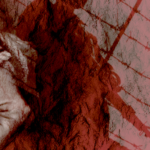Edmundo Legislador arrived in Bacolod, Negros Occidental in January 1973. He was deployed from Panay Island. At the age of 22, he was appointed Head of the entire Party organization in Negros.
He was the son of two prominent familties of Oton, Iloilo. His father was a rice mill owner, while his mother, fondly called Nanay by comrades, was a prominent mass leader of the community. He was lovingly called “Toto Eddie” by his family. But in the revolutionary movement, he was Pends or Pendong.
At a young age, he got along well with people. He took care of workers. He also loved to sing and play the guitar.
In college, he became an activist and joined the local chapter of the Samahang Demokratikong Kabataan (SDL). He was in second year college, when the First Quarter Storm swept the country. He participated in rallies denouncing police brutality in breaking up mass actions. Later he joined a Cultural Guild which offered cultural presentations during protest actions. As the student movement organized more and bigger mass actions, Pendong decided to become a fulltime cultural acativist. He also married his long-time girlfriend at this time.
Shortly after the declaration of martial law, he went to Isabela to participate in a six-month training course as a member of the New People’s Army. He learned much as a Party cadre during the six months in Isabela.
Under his leadership, the Negros Party organization set up various Party units, each one carrying out Party educational courses and setting up programs of actions. It was particularly in educational sessions, that Ka Pends excelled in providing mature leadership.
In one educational session, Ka Pends noticed that a young recruit, Ka Felix, was very quiet during the meeting. Ka Pends quietly took him aside during a break, and asked him, “I notice you hardly spoke during the meeting.” Ka Felix answered, “I am new. I still do not understand much. So, I am afraid to speak and make a mistake.” Ka Pends spoke softly to Ka Felix, “When we have our meetings, our purpose is to contribute what we can, to come up with what is best for our committee, in order to improve our revolutionary work. That should be uppermost in our mind, the good of the committee. If we keep quiet because we are afraid to make a mistake, we are thinking of our selves. We should be thinking what is best for the group. We should be thinking what will improve our work.” These words of advice helped Ka Felix in his political work.
The manner in which he did this, without much ado, and making sure Ka Felix would not be put to shame effectively taught Ka Felix the correct thing of putting the best interest of the movement as the priority. Ka Pends did it effectively without openly criticizing Ka Felix.
More than fifty years later, Ka Felix remains a revolutionary with the rich lesson he learned from the wisdom of Ka Pends.
Ka Pends guided the young Party organization in 1973 to decide which areas in Negros would be best fit to start the first NPA fronts. His wisdom benefits the party organization up to now.
In June 1973, Ka Pends was asked to go to Panay to attend the Regional Party Plenum. The group had to transfer from place to place to avoid enemy detection. However, at the end of their prolonged meetings, state forces got wind of their presence. Armed encounters took place. Several party cadres became martyrs. Ka Pends was one of them. He was shot and wounded. When the other comrades wanted to help him and bring him with them, he told them to leave him and retreat for their safety. He died of his wounds on July 27,1973.
Pends’ mother, Nanay, was so proud that her son was a martyr, she had the words written in red on his tomb: Edmundo Legislador, Freedom Fighter.
We honor Ka Pendong Legislador, Party leader of Negros from January to July 1973, beloved Martyr, Red Fighter, Mature Party Guide whose wisdom enriches us until today.



